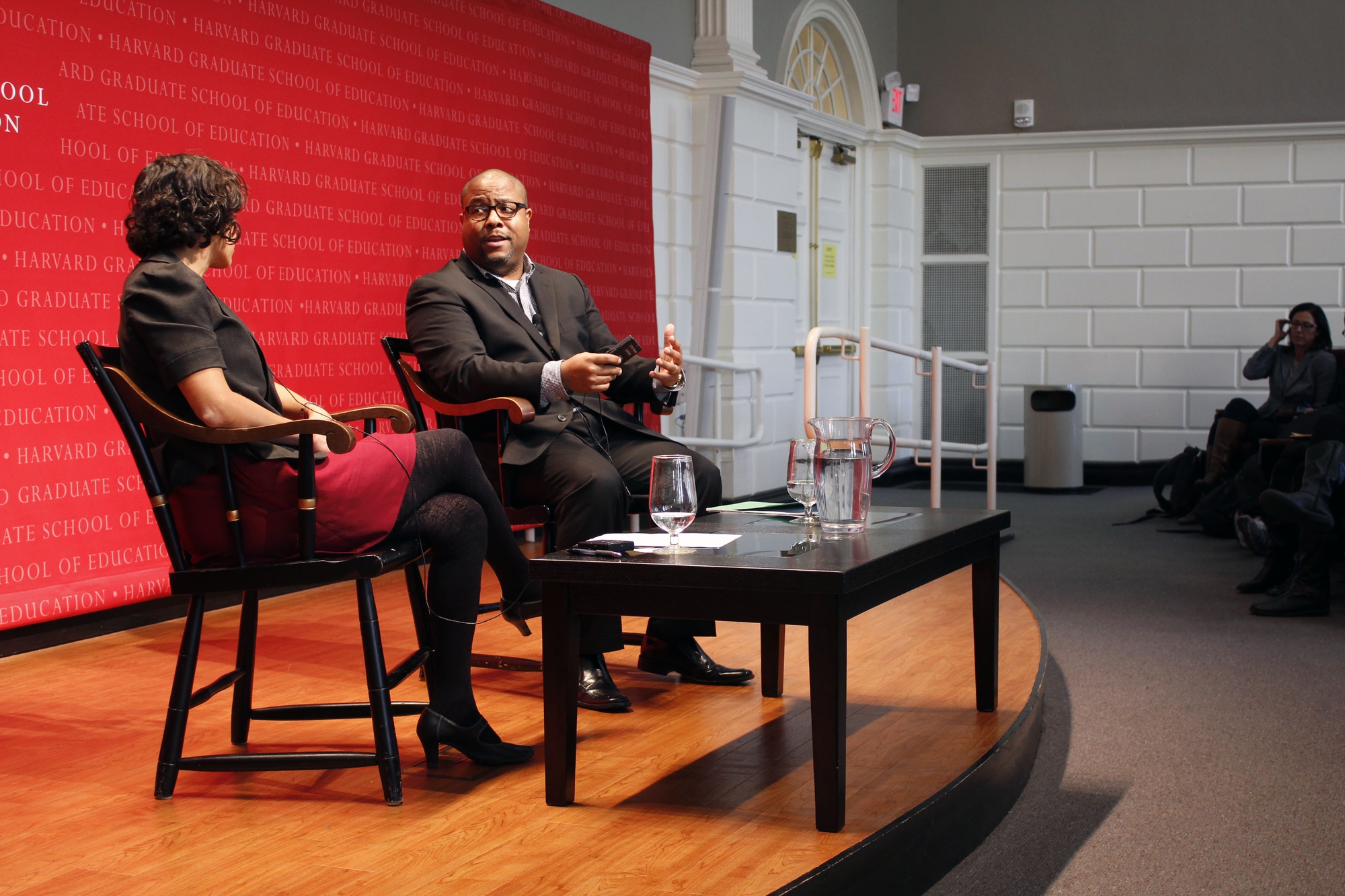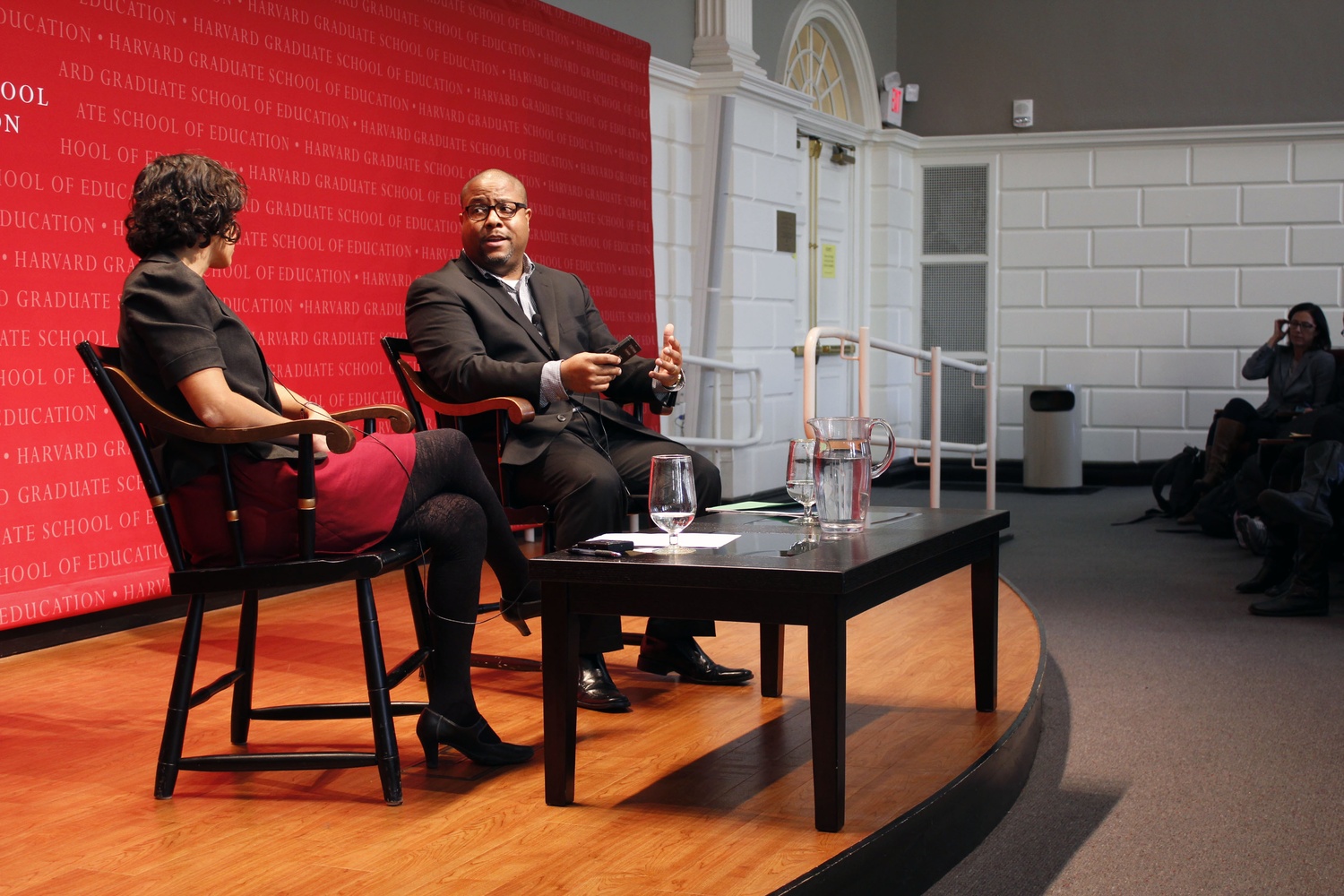
News
Cambridge Residents Slam Council Proposal to Delay Bike Lane Construction

News
‘Gender-Affirming Slay Fest’: Harvard College QSA Hosts Annual Queer Prom

News
‘Not Being Nerds’: Harvard Students Dance to Tinashe at Yardfest

News
Wrongful Death Trial Against CAMHS Employee Over 2015 Student Suicide To Begin Tuesday

News
Cornel West, Harvard Affiliates Call for University to Divest from ‘Israeli Apartheid’ at Rally
Richard Milner Talks Race and Educational Inequality at Forum

H. Richard Milner, a professor of education at the University of Pittsburgh, argued that race is an important factor in educational inequality in front of an audience of over 250 people at the Graduate School of Education Thursday as part of its "Askwith Forum" series.
“We know on a classroom level that race matters,” Milner said. “We need to reject these colorblind ideologies on an individual level, but also at the systemic level.”
He recommended increasing the number of adults in each classroom and making classes smaller in communities with a greater percentage of minorities. Milner also suggested that schools reform their policies on discipline and suspension, saying that teachers should work to understand the situation of students who are acting out.

In his introduction to Milner’s talk, Ed School Dean James E. Ryan highlighted the importance of having a frank discussion on race and education.
“Addressing these challenges and engaging in conversations about race and poverty can be awkward and uncomfortable," Ryan said. “But these conversations are absolutely necessary. Dr. Milner calls upon all of us to confront the issues of race and poverty.”
Milner’s presentation was followed by a question-and-answer-session with associate professor of education Natasha Kumar Warikoo. Attendees had an opportunity to ask questions, as well.
Mark E. Nelson, a student at the Graduate School of Education who attended the event, said that it is important for educators to be aware of issues of race in the classroom.
“As educators who are going to be working with diverse students, whether that be in the classroom, in research, or in policy, it’s essential that we are considering how we are meeting the needs of an increasingly diverse society,” Nelson said.
Milner said Harvard graduate students should be on the front lines of reimagining and rethinking educational inequality. He called on educators and GSE students to take direct action to address race and inequality.
“Some students will succeed because of you, and some students will succeed in spite of you,” Milner said.
Want to keep up with breaking news? Subscribe to our email newsletter.
